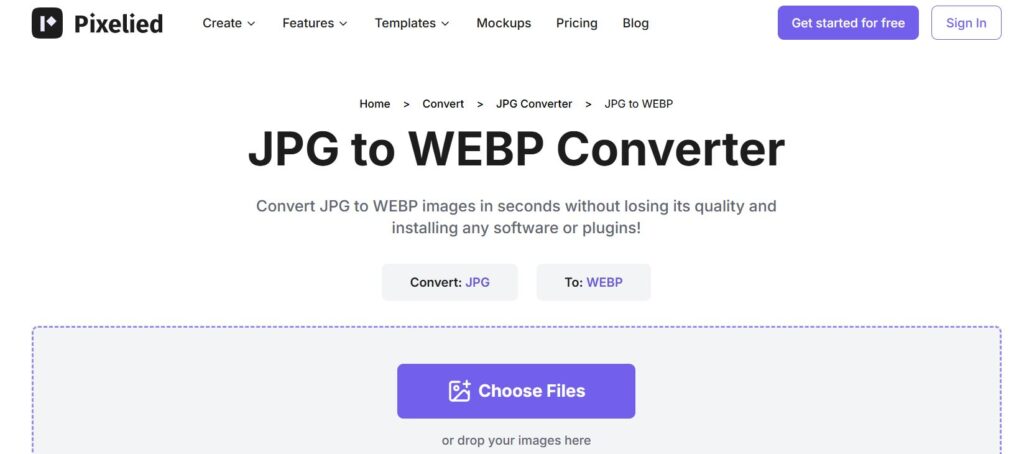In today’s digital age, website speed and performance are more critical than ever. A slow website can lead to high bounce rates, low conversion rates, and a poor user experience. Improving website speed and performance is not just a technical issue; it’s a crucial aspect of your online business strategy. This comprehensive guide will delve into the importance of website speed and performance and provide actionable strategies to optimize your website for an enhanced user experience.
Why Website Speed and Performance Matter
Website speed and performance play a vital role in determining your website’s success. Here’s why:
Impact on User Experience
User experience is paramount in the online world. Studies show that users expect a website to load within 2 seconds. If your website takes longer, visitors are likely to abandon it, leading to high bounce rates and lost potential customers. Improving website speed and performance ensures a smooth and enjoyable browsing experience, encouraging users to stay longer and explore your site.
SEO Implications
Search engines, like Google, prioritize websites that offer a good user experience. Website speed and performance are significant factors in determining your search engine ranking. A fast-loading website signals to search engines that your site is high-quality and user-friendly, leading to better visibility in search results and increased organic traffic.
Effect on Conversion Rates
A slow website can negatively impact your conversion rates. When visitors have to wait for pages to load, they are less likely to complete desired actions, such as making a purchase or filling out a contact form. Improving website speed and performance can significantly improve your conversion rates, leading to increased revenue and business growth.
How to Measure Website Speed and Performance
Before you start optimizing your website, it’s essential to measure its current speed and performance. Several tools can help you assess your website’s performance:
- Google PageSpeed Insights: This free tool analyzes your website and provides a performance score along with suggestions for improvement.
- GTmetrix: Another popular tool that offers detailed insights into your website’s loading speed and performance.
- Pingdom Website Speed Test: This tool provides comprehensive performance reports and helps you identify areas for optimization.
Key Strategies to Improve Website Speed and Performance
Now that you understand the importance of website speed and performance and how to measure it let’s explore some actionable strategies to optimize your website:
1. Optimize Images
Images are often the biggest culprits when it comes to slow loading times. Optimizing images can significantly improve website speed and performance.
- Compress Images: Use image compression tools to reduce the file size without compromising quality.
- Choose the Right Image Format: Select the appropriate image format (JPEG, PNG, GIF) based on the image type and content.
- Use WebP Format: Consider using the WebP image format, which offers better compression and quality compared to JPEG and PNG.

2. Leverage Browser Caching
Browser caching allows your website’s static assets, such as images, CSS, and JavaScript files, to be stored in the user’s browser. This reduces the amount of data that needs to be downloaded on subsequent visits, resulting in faster loading times.
3. Minify CSS and JavaScript
Minifying CSS and JavaScript files involves removing unnecessary characters, such as white spaces and comments, to reduce file size. This can improve website speed and performance by decreasing the amount of data that needs to be transferred.
4. Utilize a Content Delivery Network (CDN)
A CDN stores your website’s content on multiple servers located around the world. When a user visits your website, the content is delivered from the server closest to their location, reducing latency and improving loading times.
5. Choose a Fast Web Host
Your web hosting provider plays a crucial role in your website’s speed and performance. Choose a web host that offers fast servers, reliable uptime, and excellent customer support.
6. Optimize Your Database
If your website uses a database, optimizing it can significantly improve performance. Regularly clean up your database by removing unnecessary data and optimizing queries.
7. Reduce Server Response Time
Server response time is the time it takes for your server to respond to a user’s request. Several factors can affect server response time, including server hardware, software, and network configuration.
8. Enable Gzip Compression
Gzip compression reduces the size of your website’s files before they are sent to the user’s browser. This can significantly improve website speed and performance, especially for text-based content.
9. Avoid Redirects
Redirects can add extra time to the page loading process. Minimize the use of redirects whenever possible to improve website speed and performance.
10. Implement Lazy Loading
Lazy loading is a technique that defers the loading of non-critical resources, such as images and videos, until they are needed. This can improve initial page load time and overall website performance.
11. Use a Fast Theme
If you’re using a content management system (CMS) like WordPress, choose a fast and lightweight theme. Avoid themes that are bloated with unnecessary features and code.
12. Reduce the Number of Plugins
Plugins can add functionality to your website, but they can also slow it down. Only use essential plugins and regularly review your plugin list to remove any unnecessary ones.
13. Keep Your Website Updated
Regularly update your website’s software, including your CMS, plugins, and themes. Updates often include performance improvements and security patches.
14. Monitor Your Website’s Performance
Regularly monitor your website’s speed and performance using the tools mentioned earlier. This will help you identify any potential issues and take corrective action.
Need All-In-One Marketing Solution?
Conclusion
Improving website speed and performance is an ongoing process. By implementing the strategies outlined in this guide, you can significantly enhance your website’s loading times, user experience, and search engine ranking. Remember, a fast and efficient website is crucial for success in today’s competitive online landscape.
Need website optimization? Get In Touch With Us!





One Response
This is a fantastic and comprehensive guide! Website speed is so crucial these days, and this covers all the bases. Thanks for sharing these actionable tips – definitely going to be implementing some of these on my own site.